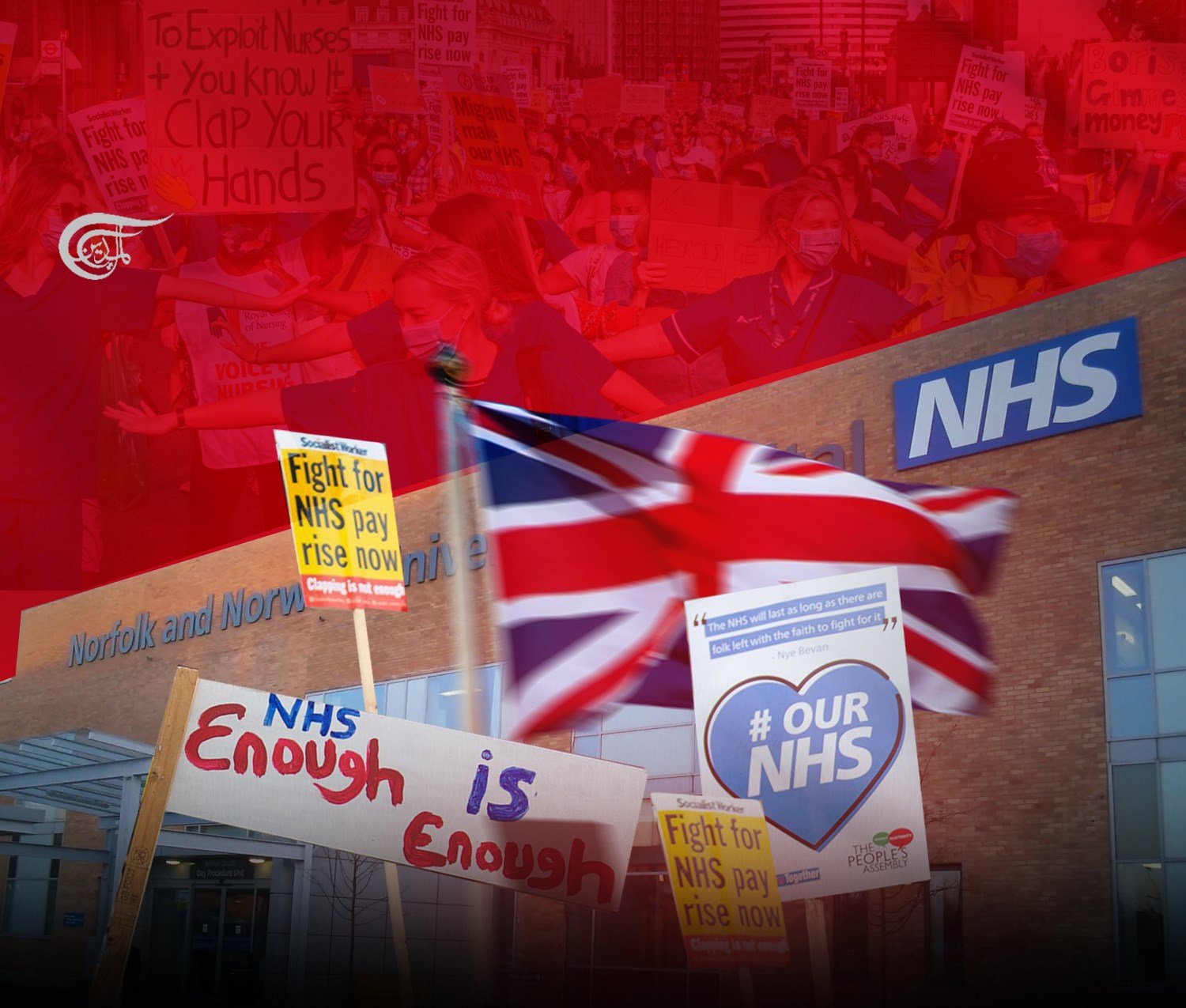News from Nowhere: Terminal
Years of underfunding, the country’s aging population, and a dearth of provision in social care (particularly for the elderly) have now brought the National Health Service to its knees.
The UK's National Health Service is this month celebrating its seventy-fifth birthday.
Once the jewel in the crown of Britain’s post-war welfare system, the NHS has in recent years fallen into disrepair and dysfunction and has become the subject of vitriolic political and industrial disputes.
Yet, once it was the pride of the nation and the envy of the world, or so we’d always told ourselves.
It was the product of a Labour administration swept into power on a wave of optimism in 1945, a government whose program of radical social reforms included the introduction of free secondary education and the nationalization of key industries.
Yet, just three years into its lifetime, the founder of the NHS had quit in protest at the introduction of fees for dental and opticians’ services.
The next year, a Conservative government introduced prescription charges for medicines. Those were dropped by a Labour administration in 1965 and reintroduced (by the same party) in 1968.
The ideal then of universal healthcare free at the point of use has faltered since even the early years of the NHS. In recent years, things have only become worse.
The day of its anniversary was marked in the British press by the current Health Secretary arguing that there was no need for a radical restructuring of the organization, while one of his more recent Tory predecessors said there absolutely was.
Meanwhile, the Daily Mail declared that the model of a taxpayer-funded healthcare system had become defunct, a position to some extent echoed by Sir Tony Blair, who, in calling for a hybrid of public and private funding, has yet again shown how much further to the right than mainstream Conservatism a former Labour leader might manage to swing.
At the same time, the ongoing public inquiry into the government's handling of the Covid-19 crisis has been repeatedly demonstrating, as if such a demonstration were necessary, that the massive cuts to public spending imposed from 2010 by the Conservatives’ austerity measures had hardly helped to prepare the NHS for the onset of a global pandemic.
Years of underfunding, the country’s aging population, and a dearth of provision in social care (particularly for the elderly) have now brought the National Health Service to its knees.
Right-wing voices continue to blame inefficiencies for the failures of the healthcare service. However, a recent report, while decrying the relative ineffectiveness of the NHS to deal with serious illness (compared with other developed nations’ public healthcare systems), suggested that, in terms of administrative and pharmaceutical costs, the British taxpayer was getting pretty good value for money.
The problem isn’t efficiency or value for money. The problem is that there isn’t enough money to run it properly.
The problem is that there aren’t enough hospital beds, or doctors, or nurses, because successive prime ministers have been happy to extol the virtues of the NHS even as they watch it fade away.
British public healthcare has, as a result, this year been hit by an unprecedented series of strikes. Its medical staff are overworked and often underpaid. The failure to reward them for their service during the pandemic, combined with the impact of the ongoing cost-of-living crisis, has proven more than many of them are willing to take.
The government’s latest response to staffing shortages – an idea to fast-track doctors through cheaper forms of medical training based on an apprenticeship system (rather than, say, paying to increase the number of places in medical schools) – hasn’t as yet inspired a huge amount of public confidence.
In short, the United Kingdom’s most cherished institution has been allowed to grow decrepit, a septuagenarian victim of political neglect.
Born in the same year as the NHS, King Charles visited a hospital in Edinburgh to mark the organization’s anniversary.
“You get to the age I am, things don’t work as well as they used to,” he said.
It may seem quite extraordinary – or indeed insane – that, despite the protestations of politicians, nobody seems ready to do what it takes to sustain a national treasure that has for seventy-five years been keeping us all alive.
Questions have inevitably been raised this month as to whether Britain’s public health service will survive to see out its first century. Indeed, it seems evident that its condition is currently critical.
Without a massive injection of resources – and a real political will to turn things around – its prognosis may swiftly turn terminal.
Yet, for more than a decade, the message from successive administrations has appeared painfully clear, scrawled in shameless capitals for all the world to see… DO NOT RESUSCITATE.

 Alex Roberts
Alex Roberts
 5 Min Read
5 Min Read










